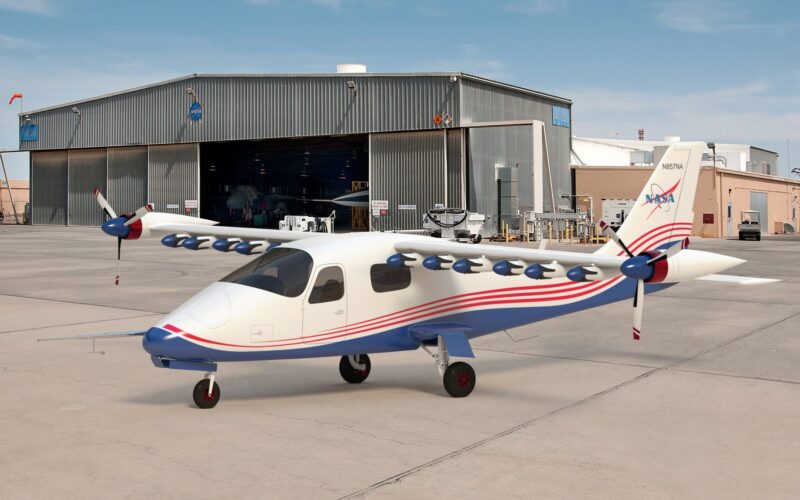NASA is ending its experimental X-57 Maxwell all-electric aircraft project without flying the prototype airframe due to a variety of technical issues and time constraints.
Launched in 2016, the X-57 Maxwell was part of NASA’s X-plane series, which aims to test and evaluate new technologies and aerodynamic concepts.
The aircraft was developed as a modified Italian Tecnam P2006T with plans to be powered by 14 battery-driven electric motors, including 12 high-lift propellers designed to fold and reduce drag when not in use.
According to NASA a potential failure mode in the propulsion system was discovered late in the project and posed an unacceptable risk to the pilot’s safety and the safety of ground personnel during tests. NASA noted that solving this issue would have taken the project beyond its planned deadline.
While the project has now been canceled, the X-57 is not considered a failure with NASA stating that its team encountered and solved numerous other technical challenges. These included issues such as overheating lithium-ion batteries and electromagnetic interference affecting onboard systems, thus contributing to the development of special filters designed to reduce or eliminate electromagnetic interference (EMI) for future aircraft.
“NASA’s goal is to drive innovation through groundbreaking research and technology development. The X-57 project team has done just that by providing foundational information to industry through lessons learned, and we’re seeing the benefits borne out by American commercial aviation companies that are aiming to change the way we fly,” said Brad Flick, director of NASA’s Armstrong Flight Research Center in Edwards, California in a statement.
The end of the program has occurred at a time when NASA’s budget and mission focus is being debated, with some questioning the agency’s role in climate technology and sustainability despite a proposed $500 million ‘Green Aviation’ plan to help the aviation community achieve net zero carbon emissions by 2050.
Moreover, NASA is under scrutiny for budget overruns, exemplified by the Inspector General’s report highlighting $6 billion in cost overruns in the Artemis Space Launch Systems (SLS) engine and booster programs.
Flick estimated that with more time and greater budget the agency could have potentially overcome the current difficulties and eventually flown the X-57 aircraft safely.
Currently, NASA’s X-57 Maxwell project is set to conclude aircraft operational activities by the end of September 2023, with documentation and close-out activities continuing for several months afterwards with additional technical publications.

